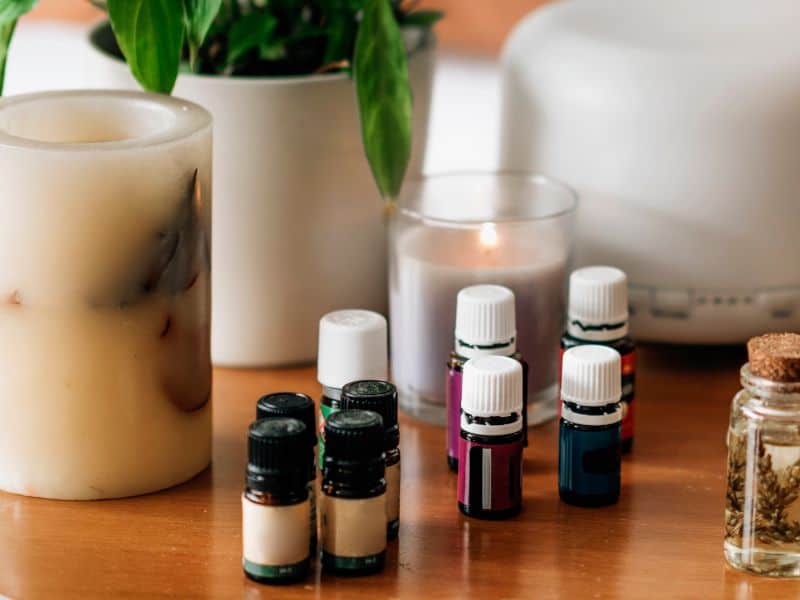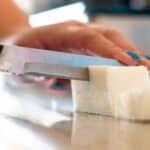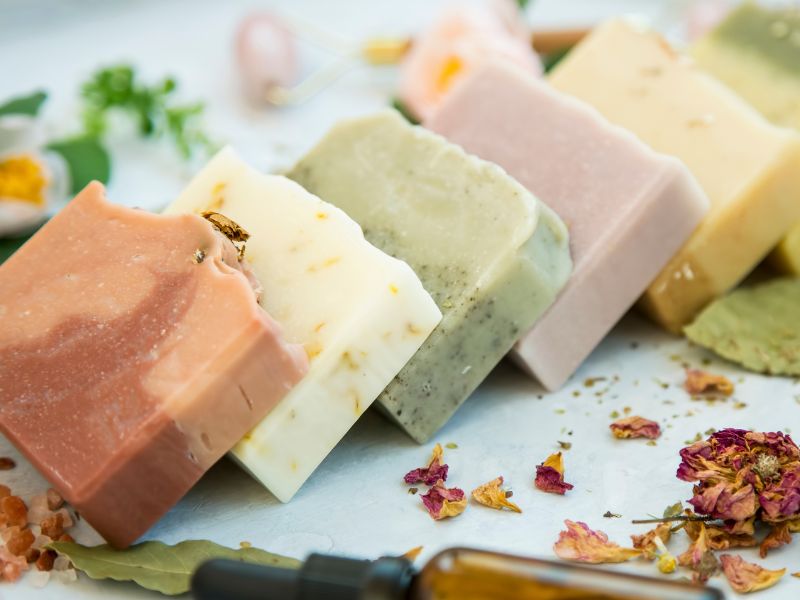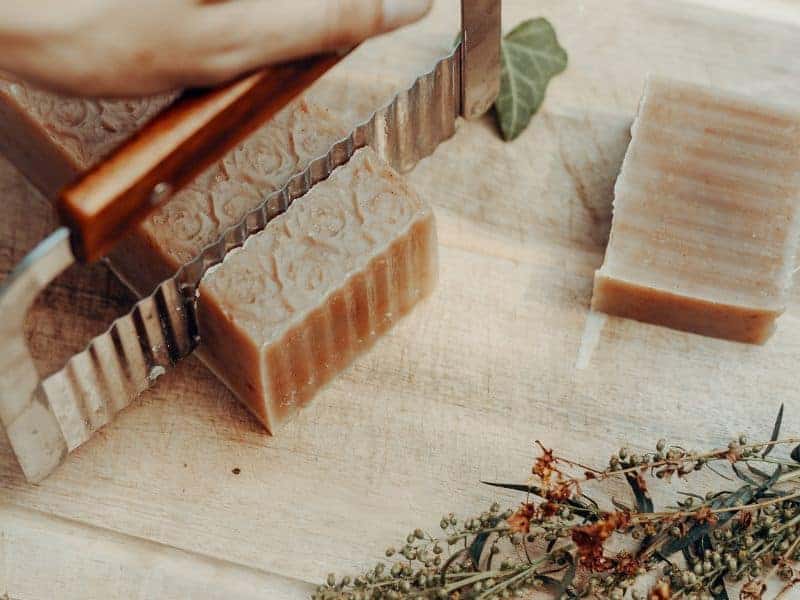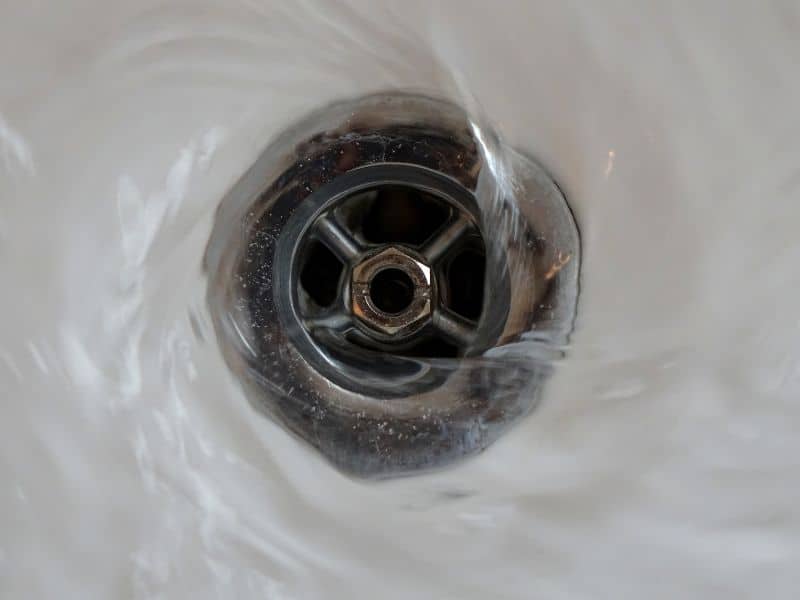Essential oils are the perfect way to add natural scents and aromatherapy benefits to your soap. These concentrated plant extracts can provide therapeutic benefits as well as fantastic fragrances. But if you’re making melt and pour soap, how much essential oil should you use?
You should use no more than 3% of essential oil per pound of soap base. For example, if you’re using a pound of soap base, add no more than 0.48 ounces of essential oil. It’s important to mix well and use essential oils in moderation to avoid negative effects.
Essential oils are potent – too much can be overpowering or even irritating. The key is using just enough oil to get the desired effect without going overboard. When making melt and pour soap with essential oils, it’s important to know exactly how much essential oil to use.
How Much Essential Oil Can You Use In Melt and Pour Soap?
The amount of essential oil needed will depend on various factors, such as the type of essential oil, its quality, the desired fragrance intensity, and the quantity of soap being made.
As a general guideline, it’s recommended to use no more than 3% of essential oil per pound of soap base. For example, if you’re using a pound of soap base, you should add no more than 0.48 ounces of essential oil. It’s also essential to make sure the essential oil is well mixed into the soap base to avoid uneven fragrance distribution.
Using too much essential oil can result in skin irritation, allergies, and other adverse reactions. It’s crucial to always follow the recommended guidelines and use essential oils in moderation.
Factors Affecting Essential Oil Amounts
The amount of essential oil to use depends on several factors, including the type of essential oil, quality, desired fragrance intensity, and quantity of soap being made.
Type of Essential Oil
Essential oils have varying properties, potency, and recommended usage rates. For instance, some essential oils like peppermint and cinnamon are more potent and require a lower usage rate than others.
Quality of Essential Oil
High-quality essential oils are pure, unadulterated, and free from any synthetic additives or fillers. Low-quality essential oils are often diluted, adulterated, or synthetic, and may not provide the desired scent or therapeutic benefits.
High-quality essential oils may require less usage rate, as they are potent and have a stronger fragrance.
Desired Fragrance Intensity
The desired fragrance intensity also determines how much essential oil to use in melt and pour soap. Some people prefer a mild fragrance, while others prefer a more robust scent. The amount of essential oil to use will depend on the desired intensity of the fragrance.
A good rule of thumb is to start with a lower usage rate and gradually add more essential oil until you achieve the desired scent.
Quantity of Soap Being Made
The quantity of soap being made affects the amount of essential oil to use. Larger quantities of soap require more essential oil to achieve the desired fragrance intensity, while smaller quantities require less.
It’s essential to calculate the amount of essential oil needed based on the soap base’s weight to avoid over or under-scenting the soap.
Calculating the Amount of Essential Oil to Use
Using too little may result in a weak scent, while using too much can irritate the skin or cause the soap to break down.
General Guidelines
It is recommended to use no more than 3% essential oil by weight in melt and pour soap. This means that for every 100 grams of soap base, you should use no more than 3 grams of essential oil. Using more than this amount can cause the soap to break down and reduce its shelf life.
Additionally, certain essential oils can cause skin irritation or sensitivity, so it is important to research the oils you plan to use and use them in appropriate quantities. It is always recommended to perform a patch test before using any new essential oils.
Essential Oil Calculator
To make the process of calculating the amount of essential oil to use easier, there are several online essential oil calculators available. These calculators allow you to enter the weight of your soap base and the desired fragrance strength, and they will calculate the amount of essential oil to use.
Adjusting the Amounts
While the essential oil calculator can provide a good starting point, it may be necessary to adjust the amount of essential oil based on personal preference and the specific essential oil being used.
For example, some essential oils, such as lavender or peppermint, have a strong scent and may only require a small amount to achieve the desired fragrance strength. On the other hand, some essential oils, such as citrus oils, have a lighter scent and may require a larger amount to achieve the desired fragrance strength.
Adding Essential Oils to Melt and Pour Soap
In this section, we will provide step-by-step instructions on how to add essential oils to melt and pour soap, as well as some tips for getting the best scent possible.
Step-by-step instructions
- First, prepare your melt and pour soap base according to the manufacturer’s instructions. This typically involves melting the soap base in a double boiler or microwave until it is completely liquid.
- Once your soap base is melted, add your essential oils. The recommended amount of essential oils is usually around 1-3% of the total weight of the soap base. This means that if you are using 1 pound of soap base, you should use no more than 0.2 ounces (or 6 ml) of essential oils.
- Stir the essential oils into the melted soap base until they are thoroughly mixed. It’s important to mix the oils in well to ensure an even scent throughout the soap.
- Pour the soap base into your mold and allow it to cool and solidify. Once it has completely hardened, remove it from the mold and cut it into bars or other shapes as desired.
Mixing and measuring
When it comes to mixing essential oils into melt and pour soap, it’s important to measure carefully. Essential oils are highly concentrated and powerful, and too much can overpower the scent of your soap or even cause skin irritation.
To measure essential oils, you can use a digital scale or a graduated dropper. For example, if you are making 1 pound of soap base and want to use 1% essential oil, you would use 0.1 ounces (or 3 ml) of essential oil.
It’s also important to choose high-quality essential oils that are pure and undiluted.
Tips for optimal scent
To get the best scent possible when adding essential oils to melt and pour soap, here are some tips to keep in mind:
- Start with a small amount of essential oil and add more if needed. You can always add more oil, but you can’t take it out once it’s been added.
- Choose essential oils that complement each other. Some popular scent combinations include lavender and peppermint, lemon and grapefruit, and eucalyptus and tea tree.
- Experiment with different essential oils to find the perfect scent for you. Some oils may smell different in the soap than they do out of the bottle, so it’s important to test them out before making a large batch.
- Consider adding other natural ingredients to enhance the scent of your soap, such as dried herbs, spices, or flowers.
Popular Essential Oils For Melt and Pour Soap
Here are some of the most popular essential oils for melt and pour soap:
- Lavender: Known for its calming and relaxing properties, lavender essential oil is a popular choice for melt and pour soap.
- Peppermint: Invigorating and energizing, peppermint essential oil is a great addition to soap for an uplifting and refreshing scent.
- Lemon: Bright and citrusy, lemon essential oil is a popular choice for soap due to its fresh and clean scent.
- Eucalyptus: With its soothing and decongestant properties, eucalyptus essential oil is often used in soap to help with respiratory issues.
- Tea Tree: Known for its antibacterial and antifungal properties, tea tree essential oil is often added to soap for its cleansing and purifying benefits.
- Grapefruit: Similar to lemon, grapefruit essential oil has a fresh and citrusy scent that is often used in soap for its uplifting qualities.
- Rosemary: With its invigorating and stimulating properties, rosemary essential oil is often added to soap for its refreshing and energizing scent.
- Peppermint and Eucalyptus: A popular combination for soap, peppermint and eucalyptus essential oils work together to create a refreshing and invigorating scent.
Frequently Asked Questions
Yes, using too much essential oil can overpower the scent of the soap and even cause skin irritation.
You should always check the safety guidelines for each individual essential oil before using it in soap.
Essential oils can be measured using a digital scale or a graduated dropper.
The scent of essential oils in melt and pour soap can last for several months if stored properly in a cool, dry place.
Conclusion
In conclusion, adding essential oils to melt and pour soap is a great way to customize your soaps with natural fragrances and aromatherapy benefits. However, it’s important to measure carefully and use only high-quality essential oils in order to get the best results.
By following these tips and experimenting with different combinations of essential oils, you can create beautiful, fragrant soaps that are sure to delight!

